Reviewer picks 2024 (pt. 1)
[We asked, our contributors answered. And did we mention eclectic? The titles range from prize- winners (BC Book, Pulitzer, Writers’) to, well, books you’re likely to be seeing for the first time as you scroll through the picks below. Thank You to our reviewers for their efforts! —Eds.]
* * *
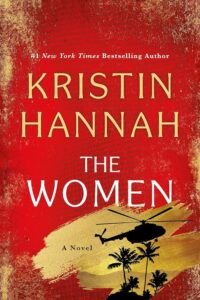
I have read so many excellent books this year, so it was difficult to narrow the list down to a trio of favourites. These ones, however, stood out in my mind long after I finished them.
I was very moved by The Women, by US writer Kristin Hannah, a tale of the Vietnam War and the women who served.
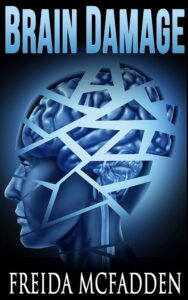
It also tells a compelling story of how all veterans were treated so badly after the war.
Another of my favourites has to be US writer Freida McFadden.
Her book Brain Damage is an account of a woman who was shot in the head but miraculously survived. This is a strong novel of determination and love, combined with psychological mystery that keeps readers on the edge of their seats as to who was the actual shooter.
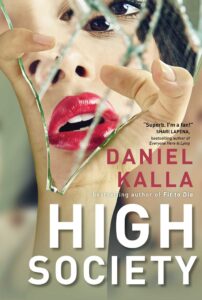
My third choice would be High Society, by Vancouver writer Daniel Kalla.
He once again uses his expertise in the world of medicine to produce a thrilling psychological masterpiece as he investigates the volatile world of prescribed psychedelic drugs.
Kalla always builds tension and includes many plot twists in all his books. — VG
* * *
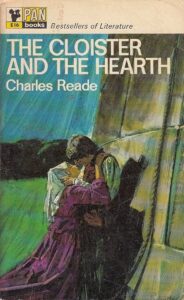
I’m an old fuddy-duddy, so my favourite book of 2024 was actually published in 1861: The Cloister and the Hearth, by Charles Reade, which suffers from the worst title imaginable, but which is a delight if you like heroic action tales set in the Middle Ages—a story of the father of Erasmus, oddly, though Erasmus hardly figures in it except as an infant. Much more to the fore is the buddy adventure of Gerard and his friend, the itinerant knight, Denys, who flee from a bear, escape murderous robbers, and survive the ministrations of ignorant doctors. It was Conan Doyle’s favourite novel. Because of its depiction of the Middle Ages, he said, but I think it’s because Gerard and Denys gave him the idea for Holmes and Watson.
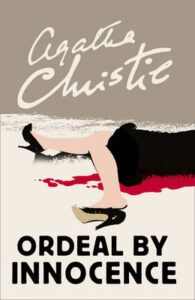
I’ll try to get closer to 2024: I’m currently reading Agatha Christie’s Ordeal by Innocence. I love Christie; I read and reread her books, usually as bedtime reading, and they’re almost always wonderful (except when she decides to get anti-Semitic, ugh!). But mostly it’s just Poirot and Miss Marple and a plot I have forgotten, so I can reread over and over and not remember whodunit. Why murder stories should be so calming, who knows?
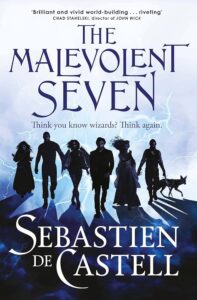
But I will wrench myself into our century and get at least to 2023, when I read two wonderful fantasy novels, which is not even a genre I like, but one read as a parable for our time: The Malevolent Seven, by my friend, Vancouver-based Sebastien de Castell, all about good versus evil, except which is which? And the other, the wonderful, playful fable about the weird town at the end of the universe: Life at the Precipice by Kingston resident R.F. Vincent.
Maybe next year I’ll actually make it to 2024. —SG
* * *
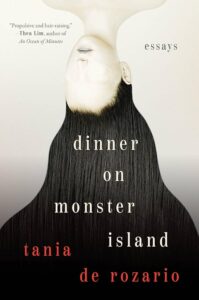
In any bookstore I beeline for novels. Recommending nonfiction—essays!—is a bit of a departure, then. But that’s what stuck with me in 2024, one about growing up in Singapore, the other about gardening.
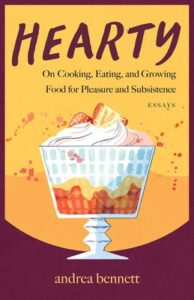
Memoir-like episodes, Tania De Rozario’s searing Dinner on Monster Island grabs hold and doesn’t let go as the author recalls life before Vancouver, when she fought for personal freedoms in Singapore.
Whether discussing her exorcism (thanks, Mom) or a school-sanctioned Lesbian Elimination Squad, the rage and grace are hypnotic.
In Hearty’s essays Andrea Bennett isn’t above overwhelming frustration, temporary self-hatred, or waves of anger. Bennett talks perceptively about potatoes and carrots and vegan macarons and working in restaurants and struggles with anxiety, and is thoughtful, candid, and poignant on every page.
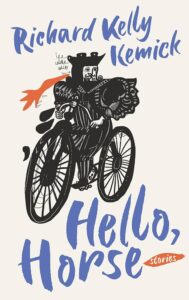
Also, short stories. I hemmed and hawed about three collections, Jen Currin’s Disembark, Myriam LaCroix’s How it Works Out, and Richard Kelly Kemick’s Hello, Horse. They’re all funny. Smart too. And while I heave a bit when someone uses “craft” in relation to art-making, they’re exemplary as story-craft—the result of much dedication to writing and revising.
But since I limited all BCR’s contributors to three favourite titles, who am I to break my own rules? Horse, by a nose. Rollicking and acrobatic, guffaw-inducing, a bit excessive, and an Exhibit A of the natural born writer. What’s not to love? —BJG
* * *
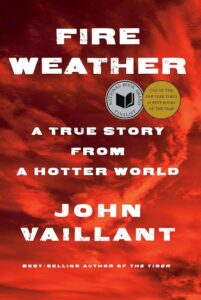
My three favourite books of 2024:
Fire Weather
John Vaillant ruins it for everyone else.
The Vancouver-based author writes nonfiction that is as gripping and edge-of-your-seat as the finest thriller. This story of the 2016 Fort MacMurray fire is shot through with tension, human interest, unforgettable vignettes, and first-rate research.
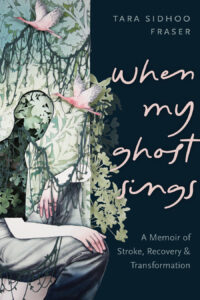
When My Ghost Sings
As a young woman, Vancouver’s Tara Sidhoo Fraser has a stroke, which she nicknames Ghost, and then has to resurrect her past life through fragments.
A beautiful meditation on memory, desire, the woman she was, and the woman she has become, told in dreamlike interpolations between past and present.
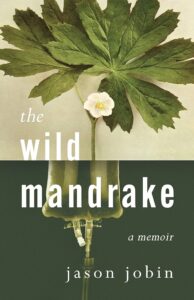
The Wild Mandrake
I fell in love with Victoria author Jason Jobin’s story of a man whose juvenile cancer recurs—repeatedly—and who has to arrange his typical young adulthood of girls, school, and jobs around the equally typical routine of chemo, sick days in bed, and surgery.
Transporting and heartbreaking. —CB
* * *
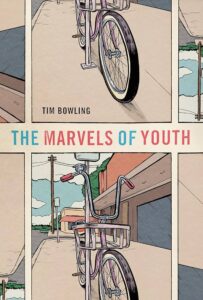
Three books of 2024 stand out for the way they use language richly, creatively, and evocatively. They’re volumes to savour. All three are also—in different ways—stirring and deeply human.
The Marvels of Youth, by Tim Bowling. Set in a salmon fishing community on the Fraser River, the novel manages both to tap into the verbal cadences of Dylan Thomas and to evoke his poignant sense of a lost past. Far from rosy, though, the protagonist’s memories are haunted by dark gothic visions.
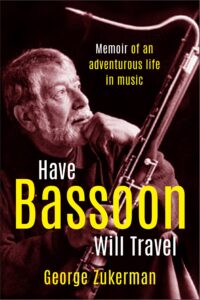
Have Bassoon Will Travel, a posthumous memoir by virtuous bassoonist and unstoppably inventive South Surrey impresario George Zukerman, is both wonderfully eye-opening and hugely entertaining.
The humour, extravagant language, and vivid details make all the more impact because through them shines the author’s warmth and humility.
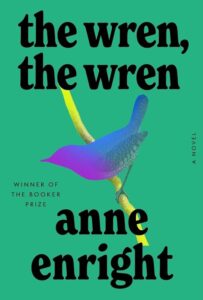
Writers’ Prize-winner The Wren, The Wren, by former Booker winner Anne Enright is, arguably, her warmest and most thoughtful novel.
Like all of her novels, though, it has to be read and reread, each chiseled, evocative sentence rich with psychological insight, deep humanity, and edgy humour. A novel of family relationships, it is also an almost painful reminder of the amazing strangeness of affection. —TD
* * *
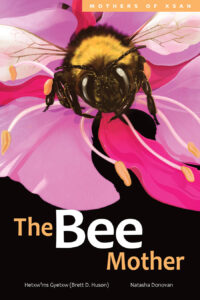
Three children’s books about flowers, bees, and First Nations history and mythology impressed me among the dozens of books I reviewed in 2024.
The Bee Mother, by Hetxw’ms Gyetxw, takes readers right into the hive where the lives of honey bees are described using simple non-scientific terms coupled with Gitxsan mythology.
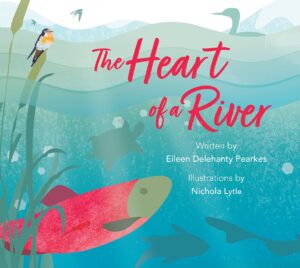
The Heart of a River, by Eileen Delehanty Pearkes, lets us swim down the mighty Columbia River with the gulls circling above, ever-watchful of the salmon that were long harvested by local First Nations.
Here we learn about the arrival of settlers and the disruption of Indigenous life on the river.
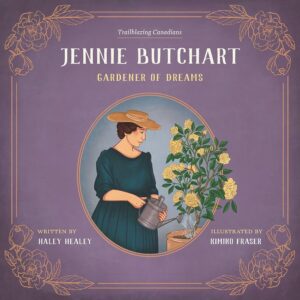
Jennie Butchart: Garden of Dreams, by Haley Healey, is about the flowers that bloom in Jennie Butchart’s garden and how they got there.
World-famous Butchart Gardens are a major tourist attraction in Victoria and this colourful book explains why and how it all came about.
All three books offer lessons in life that are enhanced by fine illustrations which add further inducements to young readers to seek knowledge from books rather than from phones. —RV
* * *